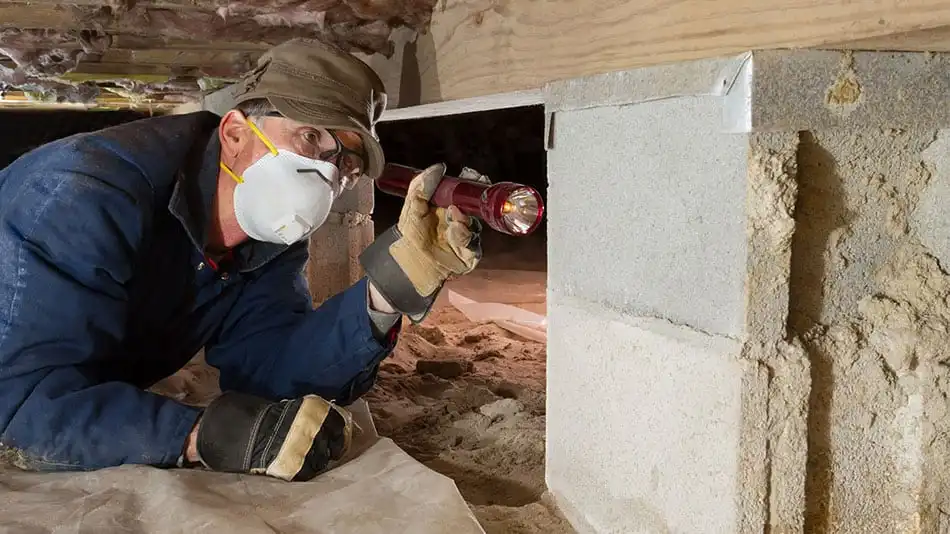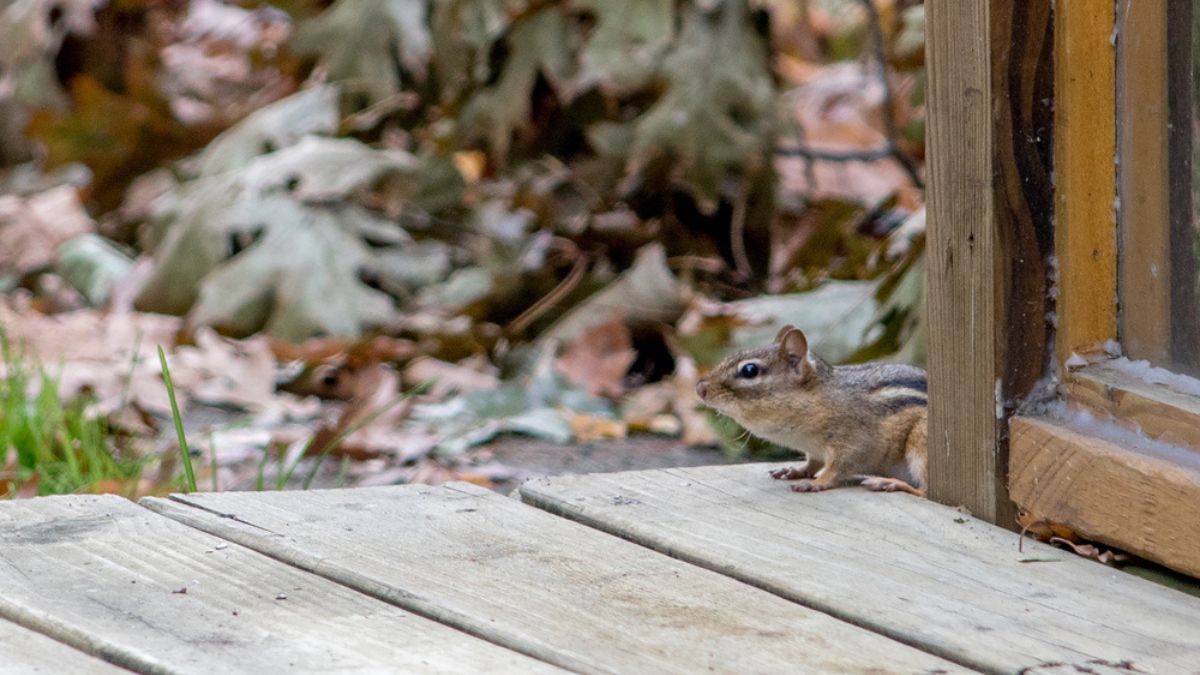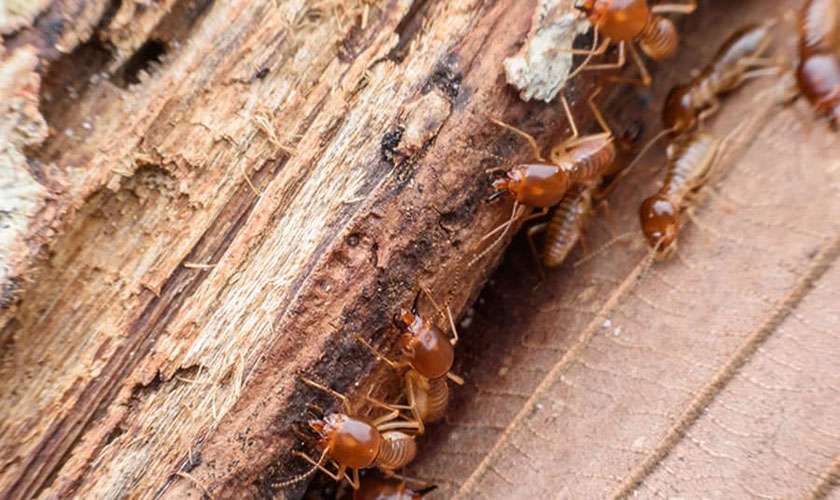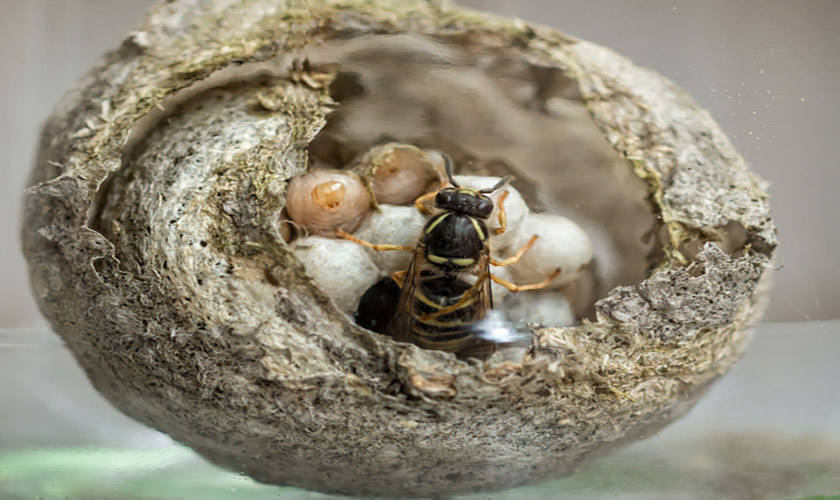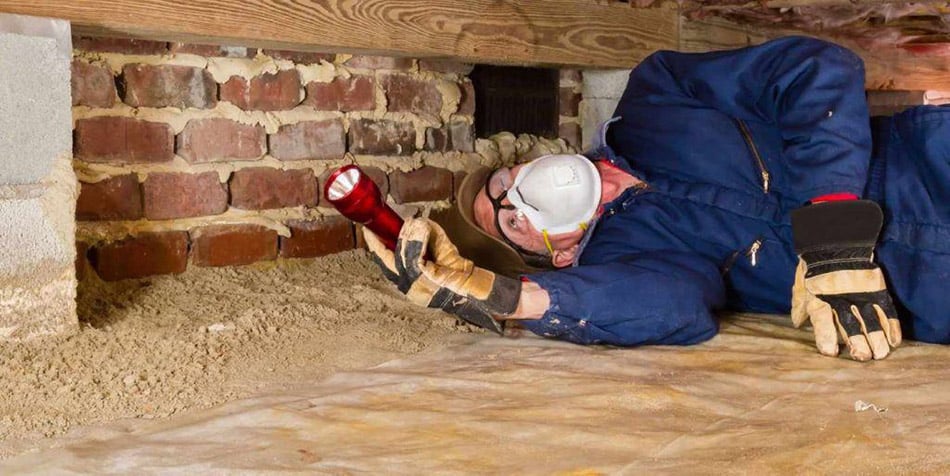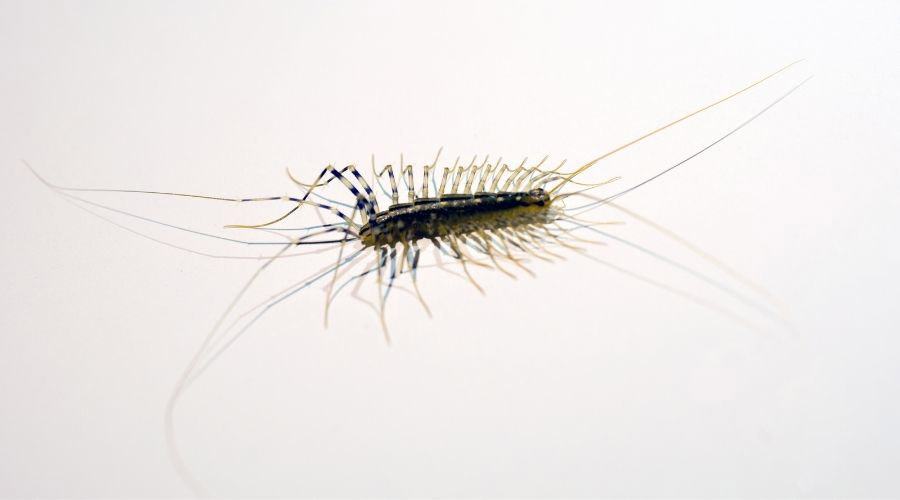
Living in certain areas always is bound to have its pros and cons. Sometimes the weather, animals, and even less likely, native bugs can torment us more than anything else in the area. In this case, we will go over dealing with Centipedes.
Here are the 12 ways you can get rid of centipedes naturally:
- Dehumidifier
- Cayenne pepper
- Boric acid
- Sticky traps
- Diatomaceous Earth
- Insect catcher
- Soap spray
- Cedar oil
- Essential oils
- Natural vegetable oil
- Create a vinegar spray
Get FREE quotes from licensed pest control technicians in your area today. Whether you need spraying for ants, roaches, spiders, ticks, mosquitos, or bed bugs, We Can Help! All technicians are screened, licensed, and insured.
In this article, we will be discussing many different things, such as going more in-depth on these answers directly above and how to prevent further infestation. Continue reading to find all there is to know!
What Are Centipedes?
By nature, centipedes are many-legged predatory bugs that use a poisonous bite to dispatch their prey before indulging in their remains. The name centipede is derived from the Latin prefix of centi, roughly meaning “hundred,” and the last name also hails from a Latin origin, with pede being a more modern translation of pedis, or pes, which means “foot.”
These little guys are one aspect of a literal legion of multi-legged bugs, essentially adjusting the number of legs and a few other unique traits that attribute them to different subphylums, like the centipede belonging to the subphylum Myriapoda, as an example.
Centipedes reproduce uniquely because they don’t need to mate to increase their population. A male centipede essentially drops a sack containing its genetic material for a female centipede to collect at her discretion.
Because centipedes do this, it allows the female centipede to fertilize itself and continue on her own. Mating habits down, there are quite a few practical purposes for centipedes that aren’t wild.
For instance, centipedes are fabled for being quite the delicacy, especially when deep-fried or, at other times, grilled for an even more robust flavoring.
A final tidbit on consuming these insect predators would be from the ancient legend of restorative properties obtained when housing centipedes in liquor.
Typically this process was only to be done for a short amount of time, removing said centipede from the drink and making an entirely different beverage with the remaining centipede body.
More Information On House Centipedes
The house centipede (Scutigera coleoptrata) is most often found with a color pallet of yellowish-grey, complimenting its rear and front antenna, as well as two sets of legs counting 15 on each side.
While somewhat startling to most at first, the house centipede combats many other household insects such as spiders, ants, and other roaming insects you might find looming in the corners of your house.
In terms of size, the largest of these kinds of centipedes can get to roughly 4 inches in length and usually live for an average of up to six years, assuming nature doesn’t run its course against them.
House centipedes, much like all of their family, are primarily nocturnal hunters, utilizing the same venomous sting to incapacitate their prey and their formidable mandibles to hold onto their victims.
These insects love to nest in damp places that are cooler than average and will gladly find themselves in your basement or sewer drains but are most comfy under rocks or flowerbeds.
As for their general threat to humans, aside from being a tad intimidating to see scurrying about, being stung by one is typically no more painful than your average bee or wasp sting. Treating the encounter as such will heal you at the same amount of speed.
How To Get Rid Of Centipedes Naturally
Now that we have a better idea of what kind of insect we are dealing with, there are a few easy ways to deal with them, and some are more complex.
Some more traditional methods of removing these predators from your home would be simply emptying its primary food source from its hunting grounds, making a living inside your home an unwise choice.
While it can be tempting to consider pursuing a chemical-based solution for taking care of this infestation, it’s worth noting you don’t need to kill the centipedes outright to deal with them. The poisons you could use against them are often a safety hazard for your family and pets.
As with any situation like this, it’s worth noting the house centipede, as we stated above, has its benefits, so going over the top in combating them may lead to a more versatile insect predator entering the home, but if it’s an infestation you are against, consider utilizing the following methods.

1. Use A Dehumidifier
On the outside, looking in, using a dehumidifier to combat a centipede might seem a bit silly at first, but there is a reason this is one of the strongest deterrents in the fight against them.
Centipedes innately love places that are damp, or worse, entirely wet, and it’s for this purpose, that a dehumidifier can make this fight an uphill battle for your new household Tennant.
The reason for them preferring the damp type environment lies behind their carapace, which cannot shut their spiracles. This defensive mechanism keeps them from getting extremely cold or becoming overly dehydrated.
For these reasons taking excess moisture out of the air would cause an extreme amount of discomfort for this creature, often making that room or area inhospitable to them.

2. Use Cayenne Pepper
A little cayenne pepper goes a long way in a meal, but it goes an even longer way in preventing traditional pests from entering your home looking for an easy meal, and the centipede is no exception to this rule.
Like all naturally spicy foods, cayenne peppers hold capsaicin, which makes hot or spicy foods, well, for lack of a better word, spicy. This hot flavoring is a defense mechanism employed by plants to deter predators from consuming them.
From an insect or other small animals’ perspective, it can produce intense heat when it is sprinkled. This method is especially effective against centipedes because they cannot prevent themselves from getting dehydrated and dying. The centipede will default to avoid these areas like the plague.
Applying cayenne peppers to any possible entry vectors will ensure you never see one in your home; double so if utilized with the above dehumidifier method. One final thought about using cayenne pepper would be the clean-up involved.
Dumping it in copious amounts in the center of the room isn’t the best way to apply it. However, placing it on the outside edges of your home, along with windows, doors, and any potential cracks you may have, is the best method to use it.
On average, it’s best to vacuum these areas and re-apply bi-weekly for the best results until the problem no longer persists.

3. Boric Acid Deters Them
A more deadly method, but effective nonetheless, boric acid is an entirely natural method of combating centipedes for the bare-bones idea that it kills them on contact.
The boric acid essentially tempts the centipedes into eating it. Once they do, the coffin receives its final nail because boric acid causes centipedes to dehydrate, which robes the insect of moisture.
For someone who wishes to obtain boric acid, it is effortless. All you need to do is stop into any local hardware store to get the ultimate centipede weapon.
As with any lethal method of pest control, the remains of the centipedes will be scattered among these application areas, and occasionally in places, you might not often check. A few days after laying down the acid, be sure to come behind these areas with a vacuum to remove any potential meals for spiders, ants, and roaches and re-apply as needed.
This cycle will have to repeat several times to ensure proper treatment, but this is the most definitive solution listed, albeit time-consuming.
Warning: Boric acid is dangerous to pets and can cause irritation to a human’s skin, so use the proper precautionary measures before using boric acid.
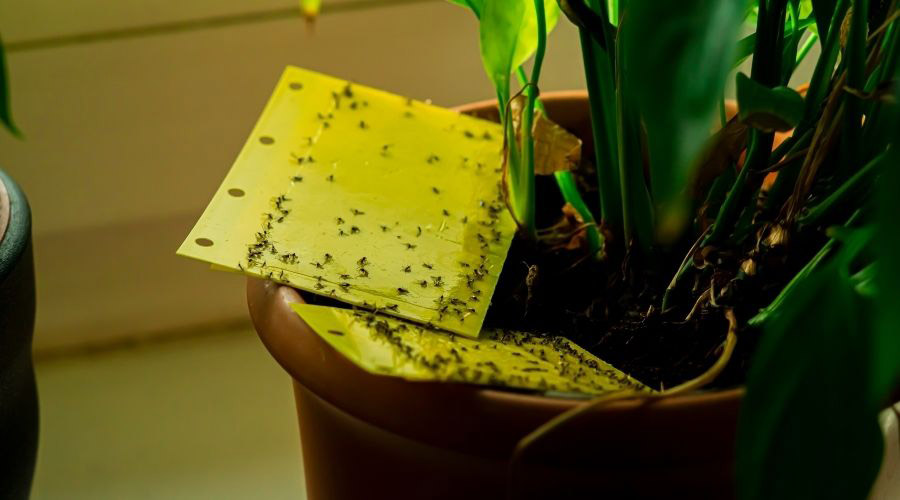
4. Use Sticky Traps
Ah yes, the sticky trap, a time-tested method and weapon against almost any insect in creation, and small rodents to boot. As simple as the name suggests, sticky traps use a powerful adhesive to root pests in place on the pads and hold them there until they expire.
These traps work great for capturing the actual centipedes themselves and the other bugs they prey upon, and as such, they have a high functioning control rate for whatever area they are deployed in.
A word to the wise, though, if you have a weak stomach or can’t handle bugs well in the first place, having someone clean these up for you may be a good idea because, seeing as the creatures are just stuck, they may be found struggling or just moving on the pads.

5. Diatomaceous Earth
Bringing up the middle ground is Diatomaceous Earth or DA. This sedimentary rock base is created over millions of years from fossilized remains of diatoms or unique groups of algae. These ancient creatures have today become a sort of off-white powder that is in its own right deadly to centipedes from the same dehydration base method that boric acid uses but to a more direct approach.
Instead of being ingested like boric acid, DA causes extreme damage to the exoskeleton of the centipede, impeding its moisture-locking ability and causing it to wither over time until it can no longer sustain itself.
While the name may seem somewhat off-putting initially, you can find DA around you daily. These things range from its uses in reinforcement for rubber and plastics, a quick-use activator for blood clotting-based studies, and even in toothpaste.
Despite this, it is highly recommended to use a face mask or respirator during general application to avoid breathing it in. It is not dangerous, but for large amounts of particles attached to your lungs and airway.
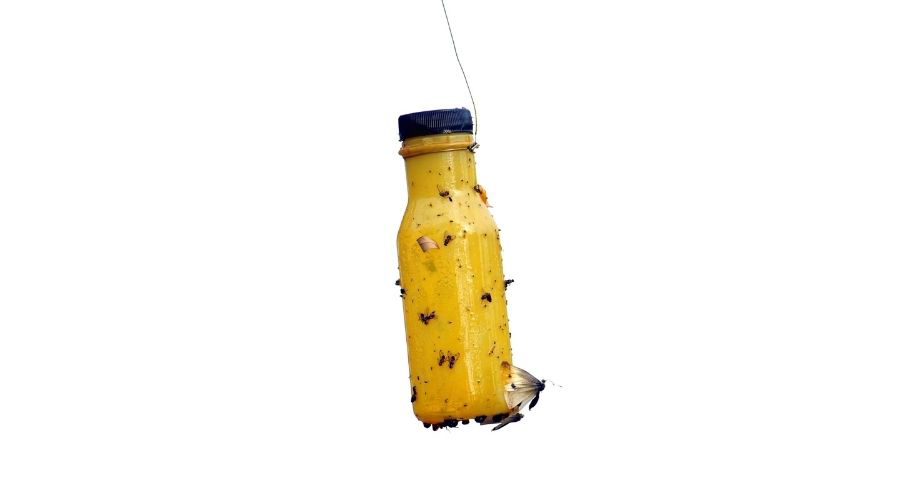
6. Use An Insect Catcher
In a more humane approach, we have the insect catcher, which, as the name might suggest, catches insects! These tools come in various colors and build but most traditionally feature a long handle and small bristles to keep the insects’ legs from quickly getting hold of any surface, thus rendering it almost immobile.
In most cases, these bristles are a solid white to ensure you can see the current inhabitant at all times and alert you if it has wrested from the grip of your tool.
One of the best uses for the insect catcher comes from getting bugs off your house’s roof and preventing them from falling directly on you when going after them. Once in the catcher, you can easily transport the bug outside and set it free. This is only for those who don’t want to end the creature’s life.
Another pro about the insect catcher is that it is versatile in its functionality. Hence, while you may purchase it for combating centipedes as per this article, it has just as much use against spiders or anything else you may want to remove.

7. Soap Spray
Growing up, being told to clean up your act is usually sound advice and guidance, but the soap spray applies this method to a lethal extent.
Some of the most beneficial parts of using soap spray come from how easy it is to get this method rolling. With a highly complex mixture of one part soap and one part water, one might need a degree to correct this method!
Jokes aside, the soap spray kills centipedes by causing them to become dehydrated, thanks to the soap removing the wax and oils that a centipedes exoskeleton is coated by. Removing these essential defenses from the centipede causes the much-needed moisture required to live to escape and leads to its ultimate demise.
Fans of multipurpose products can ensure that the cheap cost of this method, alongside its use for general cleaning, can be one of the most beneficial and economically friendly alternatives on this list.

8. Cedar Oil
Oils can also yield some pretty destructive results for insects, and none of the oils listed below have as fierce a bite against centipedes as cedar oil.
This insect-venomous oil can end an unsuspecting insect in quite a few ways, with the first being outright suffocation. The oil coats the holes along their bodies’ sides, causing the centipede to lose oxygen and die.
The next virulent method cedar oil defeats the centipede is homogenizing the bug’s body fats. This means breaking down the creature’s fat reserves, causing them to become unstable, costing the creature’s energy, and making the other processes it is enduring expedite its trip into eternity.
If this wasn’t enough, the second layer of slaughter employed by cedar oil comes from it, causing osmotic dehydration in the bug. As we have mentioned before, it is critical to the centipede’s survival; it cannot regulate moisture from its body. It dehydrates at an accelerated rate and dies alarmingly fast.

9. Certain Essential Oils
Catering to the more well-equipped of us, especially those in the more natural flow of things, quite a few essential oils can be strong deterrents to centipedes (and other bugs) in the same fashion that cedar oil is. Most of these boil down to only using the centipedes’ strong senses of smell from their antennae.
Bearing this in mind, vanilla, tea tree, and peppermint oil are all considered overwhelming to centipedes, with peppermint being by far the most successful of the group.
Peppermint oil’s appearance in the group is a nice compliment on this form of treatment primarily for its solid combative influence over most bugs and its pleasing scent to most people, two birds with one stone.

10. Natural Vegetable Oil
The final act of rebellion against the numerous legged pests from the oil category comes in vegetable oil. You can cook with it, but the oil’s ability to impede the bug’s ability to lock in moisture and interrupt its ability to get oxygen makes it a notable mention on this list.
However, cleaning up vegetable oil isn’t exactly the easiest of tasks, so while you can use it, it probably shouldn’t be unless you are in a unique situation in the first place.
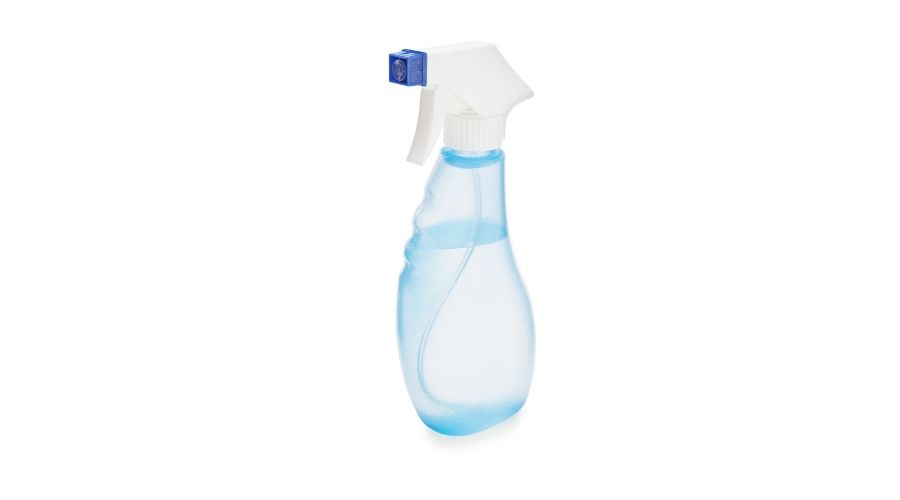
11. Make A Vinegar Spray
A welcomed conclusion from all household-based defenses comes in the form of a vinegary spray, short. To the point, vinegar’s extreme odor overwhelms centipedes’ antennae. It causes them to die from sensory overload and dehydration from removing the oils and waxes on their exoskeletons.
You can dilute the mixture with a bit of water to remove the strong scent, but pure vinegar would prove much more effective in the long run and produce a more immediate result.
How To Prevent A Further Centipede Problem
After you’ve gotten yourself in a position, you deem acceptable from the centipede infestation, taking action to keep them from returning is the most logical step. To do that, you can make a few sound choices to improve your odds of being centipede-free.
1. Remove Clutter
Having a place to hide and the nest is the start of the problem and precisely why we will begin with preventative measures.
Removing excess places for the insect to hide is paramount to making your above efforts meaningful, so removing stacks of boxes from your basement, piles of clothes, and needless knickknack build-up in the corners of your home will remove the centipede’s optimal housing locations.
This will fight back against the centipede’s primary food resources, such as ants, roaches, and other minor bugs, so you will benefit from both sides of this approach. Not to mention making your home more visually appealing to not only yourself but other visitors as well!
2. Reduce Moisture In Your Home
Returning to the dehumidifier method mentioned above, we all know moisture is the centipede’s best friend. Removing it is the same as removing the bug itself.
Keep a keen eye out for any cracks your walls might have, small openings around windows in the basement, or leaks from a washing machine or bathroom. It will improve your quality of life and remove the centipede’s will to nest there.
3. Take Their Food Source Away
Pulling it all together with this one, the clutter removal, stacked on lack of moisture, means most of the food groups the centipede aims at are now eliminated, so going the extra mile to combat what staves off ants, roaches, and spiders would be the next step.
- Ants and cockroaches aim for easy meals in the forms of leftover crumbs or other leftover food bits we absentmindedly leave behind, so tidying up around yourself and not leaving a full sink of dishes will go a long way at removing these two morsels off the menu.
- Spiders like to dine on the two, so we have another overlapping win situation here. These all come full circle in keeping centipedes hungry and taking their to-go bag elsewhere.
4. Seal Off Entry Points
Having a centipede problem always has this underlying factor that most people don’t honestly want to consider until all the above or mentioned. Still, the obvious solution isn’t always precisely glaring you in the eye.
Centipedes always have to have a way of getting into your home, and whether it be from a crack or a basement door left slightly ajar, they can and will find a way in given the opportunity.
Using door screens, sealing doors, filling cracks, and installing self-closing devices on your screen doors all contribute to keeping pests out. At times this may all be time-consuming and financially draining; going the extra mile here will save you money and sanity in the long run.
Final Word
House centipedes are remarkable and disturbing simultaneously. While visually, they aren’t the most appealing creatures in the world due to their excessive amount of long sprawling legs, antennae, and speed that can make that entire creature a nightmare to some, they are necessary.
If not for them, the ruling of other significantly more problematic and vile insects would reign supreme over your household and most of nature, in all honesty. Tackling an appropriate amount of them is the key to keeping your other critters at bay, and this modesty will ensure your home is balanced and everyone in your home is safe.
Killing them isn’t the best approach in most cases, but for all their negative attributes, remember that they have a place in our world, and if you can, try to treat them as such.
It’s often much better to have several centipedes roaming your basement than several brown recluse spiders, or worse, running the show, so be attentive and control the situation with a bit of flexibility and always keep a leg up on the competition.
Get FREE quotes from licensed pest control technicians in your area today. Whether you need spraying for ants, roaches, spiders, ticks, mosquitos, or bed bugs, We Can Help! All technicians are screened, licensed, and insured.


